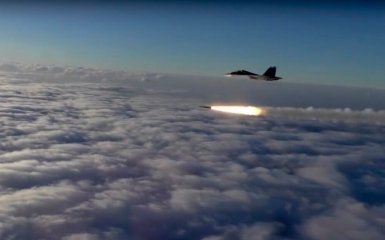Analysts from the Institute for the Study of War (ISW) note that currently the criminal army of the Russian Federation is using the vulnerability of the air defense system of Ukraine to strengthen missile and drone attacks.
What is known about the Russian army's use of Ukrainian air defence vulnerabilities
The degradation of Ukraine's air defense system is one of the most direct ways by which Russian forces can exert non-linear operational influence, analysts explain.
They note that the increase in missile and drone attacks on Ukraine by war criminals of the Russian army forces the military-political leadership of the state to transfer an already small number of air defence equipment from the front line to protect rear cities and critical infrastructure facilities.
It is emphasized that because of this, the military planes of the criminal army of the Russian Federation can feel relatively safe in the area of the front line.
It also enables the occupiers' aviation to increase their bombing with glide bombs, as well as to carry out massive missile and drone attacks on rear cities.
Expanding air operations could allow Russian forces to significantly reduce Ukraine's combat capabilities and isolate areas of the battlefield in support of efforts to achieve significant operational gains, the ISW warns.
At the same time, analysts emphasize that further US aid to Ukraine can create a broader and more stable Ukrainian air defence system, depriving Russian forces of these capabilities.
What is known about the features of the latest Russian mass attacks on Ukraine
On the night of March 29, the occupying army of the Russian Federation conducted the fourth massive missile and drone attack on Ukraine this month.
According to the military and political analyst Oleksandr Kovalenko, this is the fourth time in a month that the Russian invaders have massively attacked the critical energy infrastructure of Ukraine.
Kovalenko noted that on the night of March 29, the longest flight of the Kh-101/555 cruise missile along a route with a range of 2,100 km was recorded.
And this peculiar record and maneuvering of the rocket became possible due to the lack of appropriate means of interception on the flight path, explains Kovalenko.
The analyst also noted that the attack by Shahed-136 enemy drones was one of the longest since the beginning of the large-scale invasion of the Russian army.
The first "Shaheds" took off around 8:30 p.m. on March 28, and the last kamikaze drone was eliminated in the Lviv region around 5:00 a.m. on March 29. That is, the raid lasted a total of 8.5 hours.
Kovalenko added that another feature of this attack was information about the violation of Moldova's airspace by two Russian X-101/555 missiles.
Thus, during March, this is the second verified case of Russian missiles entering a foreign missile defense system during maneuvers, which is becoming a systemic phenomenon. On the other hand, Russian missiles regularly cross the airspace of Moldova, which Chisinau cannot react to at least for the reason that they simply do not have what it takes to intercept these types of air defense missiles, the analyst emphasises.
Kovalenko also admitted that the Russian occupiers were able to improve their own missile and drone attacks on Ukraine.
On the other hand, there is no increase in the effectiveness of striking with the subsonic component of the means of destruction.
The occupiers continue to improve flight trajectories and routes, trying to carry them out over the regions with the least protected air defense means, which may indicate that they have received relevant intelligence information — both thanks to intelligence means and from agent networks inside Ukraine, the analyst explains.
More on the topic
- Category
- Ukraine
- Publication date
- Додати до обраного


